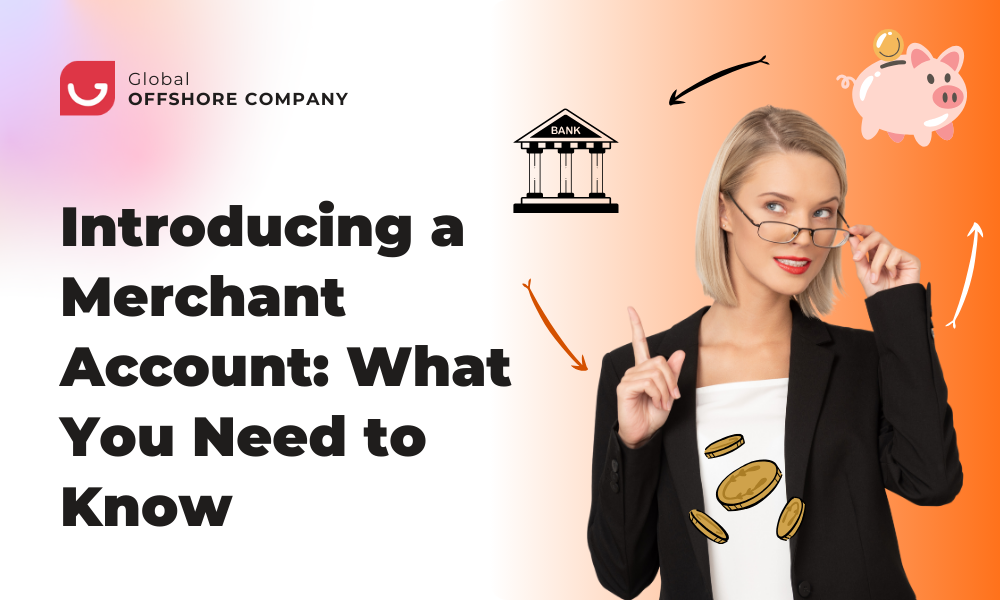Exploring Offshore Strategies for Maximizing Amazon FBA and Online Business Profits
In the realm of modern commerce, capitalizing on the potential of Amazon's Fulfillment by Amazon (FBA) program and online businesses has become a strategic imperative. The manifold benefits of establishing an offshore business structure to house these ventures have risen to prominence, outweighing conventional domestic formations. The burgeoning landscape of e-commerce and the digital marketplace underscores the urgency for entrepreneurs to explore alternative solutions for company incorporation on a global scale.
If you're perusing this article, you likely possess an understanding of the Amazon FBA model and its potential for new or existing businesses. This guide outlines the advantages of becoming an Amazon FBA seller, elucidates the significance of the legal entity, navigates the tax landscape, and delves into the art of leveraging tax-free offshore companies.
Advantages of Being an Amazon FBA Seller
The realm of Amazon FBA sellers brims with advantages that resonate in today's competitive e-commerce arena:
1. Scalability and Growth: Amazon's expansive customer base facilitates unprecedented sales growth and market penetration.
2. Efficient Infrastructure: The FBA model eliminates the need for extensive physical infrastructure, significantly streamlining operations.
3. Premier Fulfillment Services: Leveraging Amazon's world-class shipping and fulfillment services elevates customer satisfaction and operational efficiency.
4. Logistical Seamlessness: FBA sellers navigate fewer logistical challenges, enabling the sale of lower quantities while maintaining operational excellence.
5. Customer Service Excellence: The FBA framework integrates Amazon's exemplary customer service, enhancing buyer trust and loyalty.
6. Reduced Shipping Costs: FBA sellers enjoy reduced shipping rates, thanks to Amazon's considerable discounts on shipping services.
Despite the associated costs, the convenience, growth potential, and operational advantages of the FBA model make it an enticing choice for aspiring Amazon entrepreneurs.
Setting Up the Right Legal Entity
As you embark on your Amazon FBA journey, selecting the appropriate legal entity is a strategic cornerstone. E-commerce businesses, including Amazon FBA endeavors, are uniquely suited for an offshore corporate structure due to their limited physical infrastructure requirements. This approach offers unparalleled flexibility, allowing entrepreneurs to select jurisdictions based on business considerations rather than physical presence.
Navigating the Tax Burden of an Amazon Business
Intricate tax considerations dominate the landscape of e-commerce operations. Minimizing tax burdens necessitates addressing two pivotal aspects:
1. Incorporation Jurisdiction: Selecting the right jurisdiction to incorporate your company can significantly reduce or eliminate corporate taxes. However, this is only a partial solution if your tax residency remains in a high-tax country.
2. Profit Distribution Strategy: Optimizing taxes entails discerning how and where to legally channel generated profits, striking a balance between efficient taxation and compliance.
For businesses based in high-tax countries, the complexity increases as your residency and business nature influence your tax obligations. This may entail more comprehensive measures, such as relocating to a no or low income-tax jurisdiction.
Selecting the Optimal Incorporation Jurisdiction
The crux of minimizing tax liabilities through offshore structures hinges on selecting the right incorporation jurisdiction. While traditional offshore tax havens like Belize, Antigua, and the Cayman Islands offer zero corporate taxes, there's a shift toward onshore tax-neutral jurisdictions like Hong Kong, Singapore, Malta, Seychelles, BVI. These jurisdictions combine economic opportunities with reputability, creating an optimal environment for business growth and tax optimization. Explore our guide best countries to incorporate online businesses more guidance.
Strategies to Minimize Taxes Using Offshore Companies
Maximizing profits and minimizing taxes require meticulous planning and strategic structuring. Here are key strategies:
1. Consultant Structure: Establish a structure where you act as a consultant to your business, receiving consulting fees for your services. This enables you to repatriate a portion of business profits to use as pass-through personal incomes that eligible for tax-deductible expenses. Utilizing the service tax professional of your home country will help you explore the best expense management options to minimize your personal income tax burden
2. Territorial Taxation: If you live in a jurisdiction with territorial taxation, income generated outside your country isn't subject to local taxation.
This is assuming you live in a country other than the US where the country has territorial taxation. This is a system of taxation that only taxes income that is made within the country.
Alternative Strategies for Offshore FBA Success
1. Holding Companies: Employing holding companies facilitates the efficient transfer of operating company profits while minimizing tax liabilities.
2. Nominee Directors: Utilizing nominee directors enhances privacy and tax efficiency, safeguarding profits generated online.
In the case of online/remote businesses, tax liability lies primarily in the jurisdiction from where the company is managed. If you, the actual owner, do not live in a tax-free jurisdiction, it is then advisable to make use of a nominee shareholder/director who is based in a tax haven. This will ensure that the profits which have been generated online are subject to little or no direct taxes.
3. Relocation to a tetorrial tax country
The next question is how to actually utilize these profits yourself whilst still avoiding unnecessary taxes. In this regard, by far the most effective means of eliminating taxes is to physically become a tax resident of a low or zero tax country. This requires a willingness to relocate to one of the many offshore tax havens where you won’t be taxed on income generated from your business.
For many, this is not a terrible idea, as most of these countries offer beautiful climates and scenery, affordable and high-quality lifestyles, and plenty to see and do.
However, this option might not be everyone’s cup of tea. For those who are not ready to take the big step of physically relocating their lives to a foreign country. For most individuals, the former strategy is likely to work well.
Moving residence is likely to be for US passport holders specifically or individuals who want to pay absolutely zero taxes. However, it should be noted that it is possible to pay zero taxes while living in a high tax jurisdiction.
This will be dependent upon the country where you live, its CFC laws, and if the country is a member of the Common Reporting Standard (CRS).
4. Asset Segregation: Dividing assets among multiple offshore entities reduces risk exposure and fortifies asset protection.
5. Intellectual Property Management: Centralizing intellectual property in offshore entities maximizes tax efficiency and enables effective licensing agreements.
Choosing the Right Path for Offshore FBA Success
Striking the right balance between business aspirations and tax optimization is pivotal. For some, relocating to a tax-free jurisdiction may be the ultimate solution, while others may opt for strategic offshore structures and residency choices. US citizens, however, must navigate additional considerations due to FATCA and CFC laws. Balancing these elements will empower entrepreneurs to harness offshore strategies effectively, ultimately leading to e-commerce prosperity while minimizing tax liabilities.
*Note for U.S. citizens: US citizens are limited in their tax reduction possibilities due to FATCA and CFC laws. Opening an offshore company can increase privacy and asset protection, but you can not eliminate your taxes without giving up your citizenship. If you are a US citizen you are obligated to pay taxes on all worldwide income.
Disclaimer : The information provided in this blog is intended for informational purposes only and should not be construed as legal, financial, or tax advice. The content is designed to offer general insights into offshore company structures and strategies for Amazon FBA and online businesses. However, every individual and business situation is unique, and the complexities of legal and tax matters require personalized guidance.











